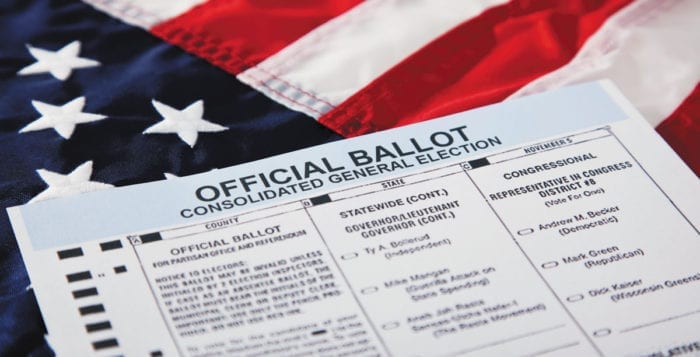Thanksgiving is arriving at the right time. With so much to be thankful for, it should be hard to remember one’s passions about the outcome of the recent presidential election. Yet there is talk about families who are calling off their Thanksgiving reunions around grandma’s richly laden table because they don’t want to talk politics with relatives who were on the “other” side. What a travesty, as if anything were more important or enduring than the safety net of family.
People have a right to think differently, even if they are related. There is, after all, no accounting for the distribution of genes, and anyway that’s not important in the scheme of things. What is important is the love family members feel for each other and the security that they have each other’s backs. If that is not the relationship one has with one’s family, I guess differing political opinions are a good enough reason to break off what was a meaningless business of just going through the kinship motions to begin with.
Even though the present situation is not nearly as dire, I am reminded of the Civil War or the War Between the States, which pitted brother against brother on the battlefield. That was a tragedy of deepest proportions. Right now, we are merely dealing with the outcome of an election whose consequences are perhaps feared or cheered but have not been actualized. If matters do get worse in our nation, we are going to need each other all the more to manage. And if they get better, then we can all cheer together.
Let’s wait and see — and break bread together, treasuring the love that binds us rather than the rhetoric that divides us.
As we go forward, we should remain vigilant about what is happening in our country and speak truth to those in power. The end of the election, at long last, is but the beginning of the next chapter. We have the right, as Americans, to speak our minds and expect those who represent us to hear us. Indeed, we have the obligation to remain active in our society, letting our lawmakers know how we feel even as we set an example of staying informed and engaged for our children and grandchildren.
What we should take great care to do, however, is work to separate fact from fiction. Communication in today’s world is infinitely more complicated than when our founding patriots read newspapers to learn what was happening. And even then, they had to be sure whose words they were reading and whether the writers could be trusted. By comparison today, there are so many different vehicles claiming to give the “facts.” Newspapers, radio and TV networks have been joined by cable, the Internet and dangerously, social media, where anyone can say anything without the benefit of fact-checking and their words can be transmitted to literally millions of people.
This is how jihadists woo recruits. This is also how politicians’ supporters win voters. So how can one tell if what one is reading is fact? The answer is obvious but hard. We must use that same Internet to check out what we have read on social media, not just assume that what we are told is correct because it comes from a good friend or loved one. Facts must be corroborated by multiple news sources, not just by opinions. Indeed, the more dramatic an assertion, the more likely it will be published in many places, not just on Facebook or Twitter.
Also, we need to talk with more than each other, by which I mean those with similar views. We need to talk to people on the “other” side of issues and ideology. At the least, we may learn how they come to the conclusions they do. And maybe we can hear something we might agree with, creating a bridge and not a wall. Some of those we talk with might even be our relatives. But that brings me back to grandma’s dining room table: Wait until everyone has finished and enjoyed dinner first before discussions commence.
Happy Thanksgiving!





